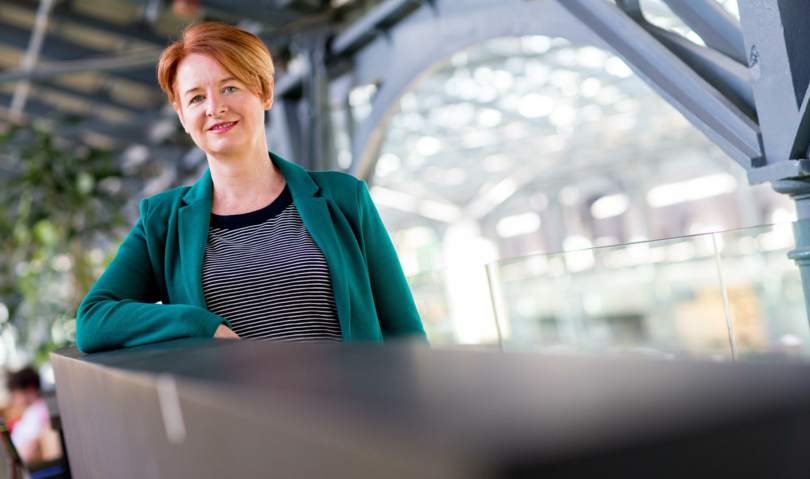Chasing Returns has had its PlayMaker financial trading product accepted into a testing environment run by the UK’s Financial Conduct Authority.
Since 2016, the Financial Conduct Authority has operated a regulatory ‘sandbox’ which allows tech companies to test innovative offerings in a live environment, and Chasing Returns is one of just two two Irish companies to have been selected for the sandbox since its launch.
Chasing Returns says its technology analyses performance history to help traders understand their individual psychological strengths and weaknesses and turn these to their advantage. Its PlayMaker product aims to help them stay on track by teaching them trading discipline as they trade in real time.
Founder and chief executive Ann Hunt (pictured) said: “Eighty per cent of traders in the UK currently lose money, according to the FCA. The sandbox will enable us to test how much PlayMaker can improve this. PlayMaker promotes better trading discipline and money management. It is aimed at helping traders in the new regulatory environment, where leverage is limited and appropriate risk levels are key to success.”
The company also operates GamePlan, a platform that the company says has attracted in excess of 20,000 traders around the world. It says that large-scale use of the platform with Canadian-based FX broker OANDA shows that it works at scale to improve decision-making and returns, and enhance revenues for the client.
Hunt added: “It’s one thing to develop and launch a product you really believe in, but to see it working successfully at such a large scale worldwide is highly rewarding. Traders who previously lost money due to psychological biases or lack of discipline are now trading smarter and making more money thanks to our technology.”
In May 2018, Chasing Returns Ltd secured €200,000 investment from Cardano Holdings, where the principal is Ivan Fox of Merrion Capital. Fox and Chasing Returns director Jim Hannon invested €50,000 each in August 2017, which leveraged €100,000 from Enterprise Ireland.
The state agency had previously provided €200,000 of taxpayer funding to Hunt’s venture. The founder herself invested €5,000 capital in March 2015. Startup losses to end 2016 amounted to €78,000.








